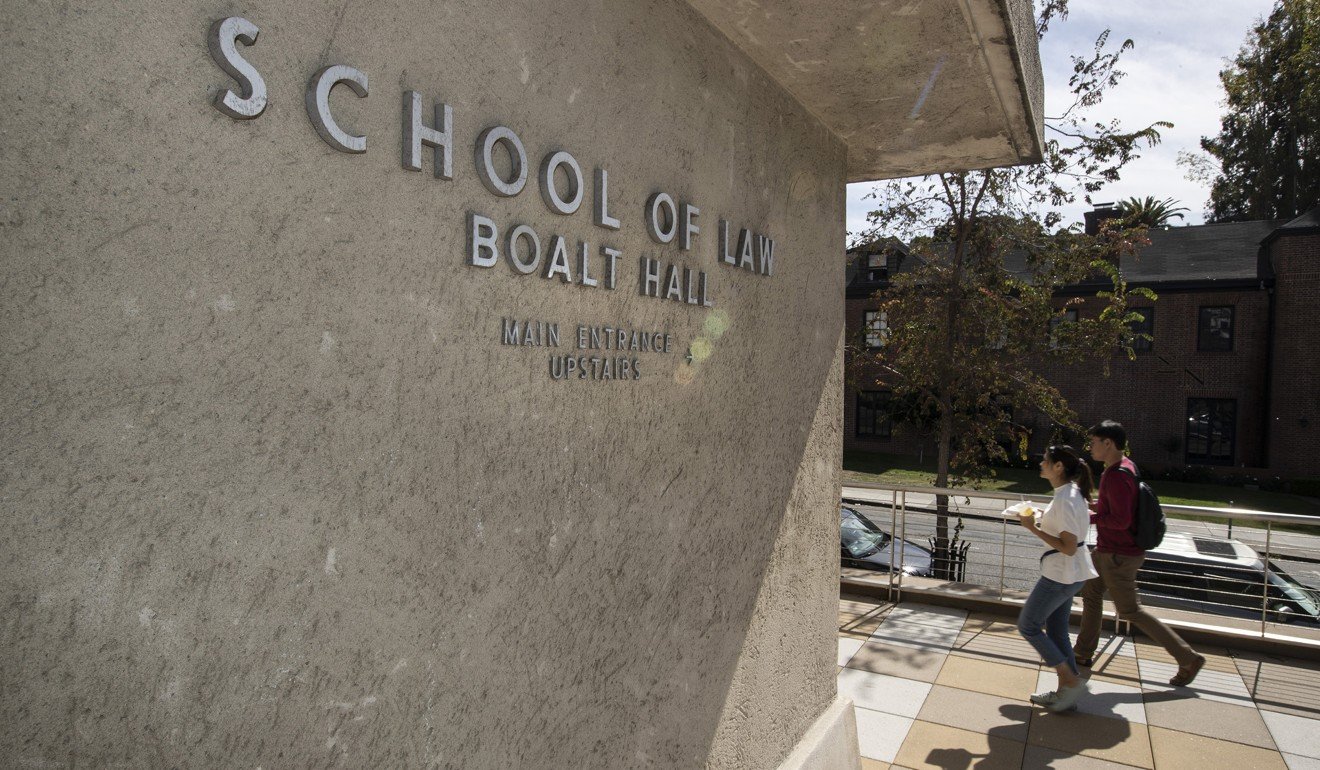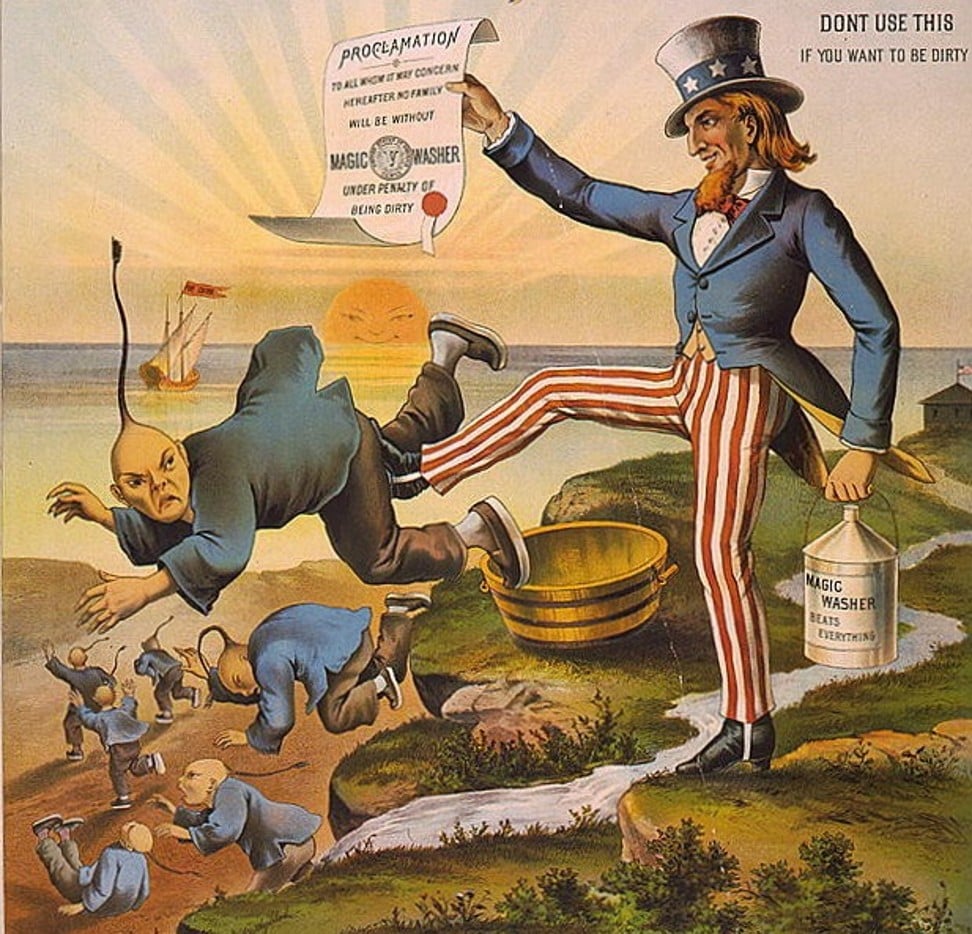
University of California, Berkeley’s law school moves to strip name of famed Boalt Hall, named after anti-Chinese racist
- Revelation that John Henry Boalt, a 19th-century San Francisco lawyer, was virulently anti-Chinese has rocked University of California, Berkeley
- Plunged school into debate over what to do when honoured historical figures turn out to have unsavoury pasts
The University of California, Berkeley’s elite law school will move to drop the name of its famed Boalt Hall after a century because it honours a man now known to have been an anti-Chinese racist, the dean announced.
Dean Erwin Chemerinsky said he struggled for months over the school’s close ties to the name of John Henry Boalt, a 19th-century San Francisco lawyer who described the Chinese labourers coming into California as unassimilable murderers and thieves and successfully pressed for an 1882 federal ban on Chinese immigration.
Details of Boalt’s unsavoury past were widely disseminated for the first time after Charles Reichmann, a Berkeley law lecturer, last year published an op-ed and, later, a law review article.
In a letter to the law school community Tuesday, Chemerinsky said he changed his mind several times as he sorted through hundreds of “passionate, persuasive messages on both sides”.
About 40 per cent wanted to keep the name and the rest wanted to drop it.

Some argued that many historical figures, including Thomas Jefferson, had mixed legacies. Others feared that dropping the Boalt brand would hurt the law school or that it would dishonour Elizabeth Josselyn Boalt, who donated US$100,000 for the original law school building in her late husband’s name. (The law school moved to another building in 1950.)
In the end, Chemerinsky said he was most persuaded by those – including many students and alumni of colour – who were pained by the continued use of the Boalt name.
The term ‘Asian-American’ was intended to create a collective identity. But what does it mean in 2018?
“I was moved by the many who wrote me expressing their discomfort with honouring someone who expressed vile racism, especially without anything to point to that would justify honouring him as an individual,” Chemerinsky wrote.
He said he would ask the campus building committee to drop the Boalt name from the law school’s classroom wing. The committee will launch its own review, which will include a public hearing, with a decision by UC Chancellor Carol Christ expected next spring. UC President Janet Napolitano then would have the final say.

Chemerinsky said the law school will cease using the name in most other cases – on school directories, its Facebook page, the title of lecturer positions – and would encourage student and alumni organisations to do likewise. He added that the school will find ways to make sure that Boalt’s racism was remembered.
Film explores the history and legacy of Chinese Exclusion Act, a racist stain on the American dream
The dean made no recommendation on removing the Boalt name from two professorships endowed by Boalt’s widow, who is not known to have shared her husband’s bigotry. Chemerinsky said the school would continue to honour her generosity and her portrait would remain on a wall in the classroom wing.
Alumni – many of whom proudly call themselves “Boalties” – are free to continue using the name as they wish, the dean wrote.

Jeffrey Lin, a current law student of Chinese and Korean descent, said keeping the Boalt name was unthinkable for him and many other Asian-Americans – who make up about one-fifth of the students in Berkeley’s juris doctor degree programme.
“The overwhelming sense is that we don’t feel comfortable in a place where the name Boalt is used,” Lin said.
“Because he was a person who stood for racist and xenophobic ideals and who vehemently didn’t want Chinese here.”
Reichmann, who wrote the op-ed, said he is thrilled to have made a difference.
“It’s part of society’s ongoing obligation to consider its history,” he said.

